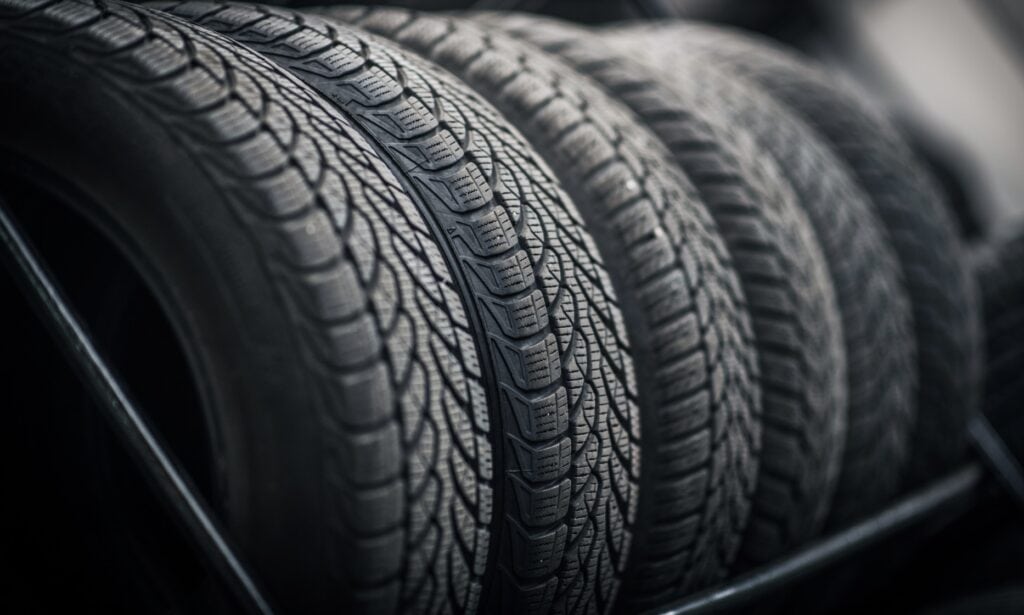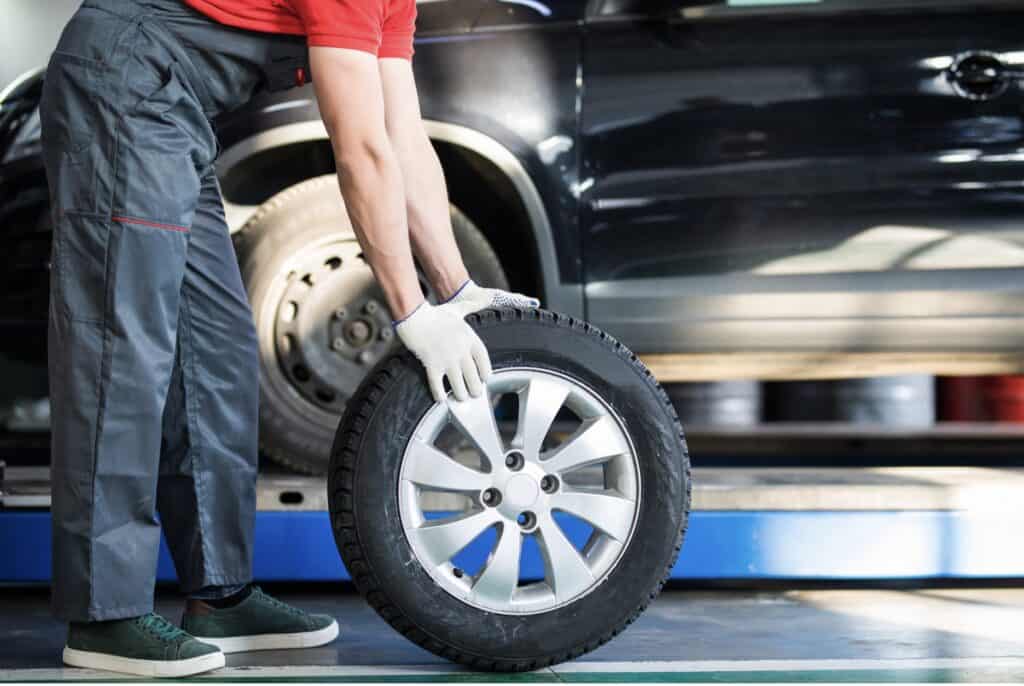Summer Tires vs. All Season Tires, Part 2: All-season Tires
 Welcome back to our series on all-season and summer tires.
Welcome back to our series on all-season and summer tires.
In Part 1 of the series, we focused on the benefits and drawbacks of summer tires. In Part 2, we’ll do the same for all-season tires to give you a better idea of which type of tires are best for your vehicle — or if switching between the two (depending on the season) might be the best choice.
Made specifically to be driven year-round, all-season tires have the ability to handle most driving situations adequately, but typically won’t perform as well as a more niche tire type like summer tires. For the average driver these tires can often be the right choice, as they can be used year-round no matter what the weather or season. That said, in severe driving conditions (IE: deep snow, or high-performance driving) they can fall short.
 Benefits of all-season tires also include:
Benefits of all-season tires also include:
- They have more grooves and sipes (small slits in the tread) than summer tires for better performance in a variety of conditions like snow and rain
- Typically, they tend to last longer than summer tires — especially a quality brand like Firestone or Goodyear tires)
- Top quality all-season tires can have a tread-life guarantee of more than 50,000 miles, and some are even as high as 85,000 miles
- They are more quiet than summer tires
- Some all-season tires have low rolling resistance, yielding higher fuel economy than other types of tires
 Some of the downsides of all-season tires include:
Some of the downsides of all-season tires include:
- They provide less traction and performance than summer tires, making them a poor match for sports cars and other performance vehicles
- All-season tires provide less grip and precision than summer tires
- All-season tires need longer stopping distances
- The downside of their smoother, quieter ride and longer tread life, is less traction than summer tires
- If we’ve had an exceptionally bad snow storm, they won’t perform as well as all-season tires
As you can see, many of the downsides of all-season tires, as compared to summer tires, are performance vehicle-centric — and many of them are only detriments during the warmer months.
Get in Touch
In the meantime, if you have questions about tires, feel free to contact us anytime! You can also schedule a service online by clicking on the “Request Appointment” button in the navigation above.
 Benefits of all-season tires also include:
Benefits of all-season tires also include: Some of the downsides of all-season tires include:
Some of the downsides of all-season tires include: